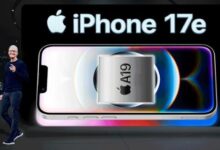GTBank vs Innoson: 7 Key lessons
 After about eight years of intense legal battle, the dust has finally settled in the face-off between Guaranty Trust Bank and the CEO of Innoson Nigeria Limited, Chief Innocent Chukwuma who obviously is having the last laugh after the Supreme Court granted him a writ of fifa(in one of the cases) to take over the properties of the GTBank as a result of the bank’s huge indebtedness to his company and its ‘inability’ to pay.BRANDPOWER captures seven key lessons from this epic legal battle.
After about eight years of intense legal battle, the dust has finally settled in the face-off between Guaranty Trust Bank and the CEO of Innoson Nigeria Limited, Chief Innocent Chukwuma who obviously is having the last laugh after the Supreme Court granted him a writ of fifa(in one of the cases) to take over the properties of the GTBank as a result of the bank’s huge indebtedness to his company and its ‘inability’ to pay.BRANDPOWER captures seven key lessons from this epic legal battle.
One key function performed by commercial banks all over the world is the granting of short and long term loans and inter-mediation for commerce and business development. This is what Guaranty Trust bank ostensibly delivered to Innoson automobile manufacturing company in 2004 but eventually ended up on the losing side due to some costly mistakes.
Meanwhile, prior to the ill-fated loan transaction between GTbank and Innoson in 2004, the two organisations had enjoyed a robust and very smooth business relationship as the Chairman of Innoson, Chief Innocent Chukwuma had obtained several loans from the bank and repaid promptly according to the terms of the loan agreements. This was a good premise upon which the bank went ahead to offer a loan of N1.3 billion to to the automobile company to facilitate the importation of vital goods and components.
According to reports, in 2004, Innoson Nigeria Limited imported about 25 containers of Motorcycle CKDs into the country after it had obtained a concession certificate from the Federal Ministry of Finance which allowed it to import at 5% duty and the certificate was to expire in July 2005. The duty was paid by GTBank and a receipt issued. However,the Customs refused to release the goods to Innoson on the grounds that a ‘circular’ had removed the name of the company from the list of companies enjoying the concession. But the Chairman, Innocent Chukwuma, appealed to the then Minister of Finance, who having reviewed his appeal, approved that Innoson be allowed to clear their goods with the concession certificate.
The documents were subsequently re-submitted for clearance and final approval came in February 2006. But, the goods which involved 25 containers of Motorcycle CKDs, could no longer be found. The Nigerian Customs had already auctioned 18 out of the 25 containers. This triggered a conflict between Innoson and the Nigeria Custom Services (NCS). Later in 2006, attempts were made to resolve the crisis and several parties such as Representatives of Innoson, Ministry of Finance, Presidential Special Committee on Port Decongestion and the Customs came together. GT Bank was not among the parties because it was only a banker to the two parties. But, while discussions and efforts were going on at a high level to resolve the problem, the remaining seven containers of Motorcycle CKDs were again, auctioned off by the Customs. This compelled Innoson to sue the Customs to court (Suit FHC/L/CS/603/2006).
In the outcome of the judgment delivered in July 2011, the court ordered the Customs to pay Innoson the sum of N2.4 Billion being judgment sum of N700 million plus accrued interest. It was at this point that Innoson obtained a legal instrument – ‘garnishee order’ from the court, which ordered GTBank to pay the judgment debt of N2.4 Billion. This order is not against the GT bank per se, but against Customs fund domiciled in the bank. However, instead of the Nigerian customs being the body that should appeal against the judgment, it was the GTBank that decided to appeal the court ruling at the Court of Appeal, Ibadan Division.
Unfortunately on February 6, 2014, the Court of Appeal dismissed the GTBank appeal and affirmed the judgment of the trial Court which ordered GTBank to pay the said sum of N2.4 billion belonging to the customs to Innoson. GTBank again appealed to the Supreme Court and it still lost. This was the first case Innosonhad with GTBank and won fair and square; but there was more to come!
While the court case concerning the NCS’ sale of the ‘containers’ goods’ was on-going, both GT bank and Innoson Company continued to do business. Within the period, Innoson Nigeria Ltd operated a current account with GTBank. The automobile company in the normal course of business,obtained and repaid a loan of N1.3 billion from the GTBank with a legal mortgage of its properties valued at more than N1.4 billion.
However, after repaying the loan it obtained from GTBank, Innoson discovered that the bank had imposed excess and unlawful charges on its current account. It then complained to the bank, who after much pressure, agreed to pay back 559 million out of over 700 million naira allegedly discovered by Innoson.
The company later agreed with the GTB valuation but insisted that the 559 million be paid with a 22% interest rate because it had been repaying its entire loan stock with the GTBank at 22% interest rate, after all, what’s sauce for the goose should be source for the gander’. GTBank refused and Innoson sued them at the Federal High Court in Awka who slammed a 4.7 billion naira suit against the GTBank. Afterwards, the GTBank filed an appeal but lost out completely. As a way of escaping the court judgement, the bank accused the company of forging shipping documents and even involved the EFCC but the Innoson boss, Mr. Chukwuma was later vindicated.
After the prolonged intense drama, Innoson Nigeria Limited finally obtained a writ of fifa from the Federal High Court InAwka on March 29, 2019 to take over GTBank properties over its indebtedness which has run into over 8 billion naira with accrued interest. It is over two months now since the judgement of the Court; yet, the GTBank has not complied with the court order because doing so will drastically affect its financial operations within the country. Meanwhile, as the dust gradually settles on the year-long face-off between the two proudly Nigerian companies, there are many lessons for other corporate bodies within the country to learn from it all.
The first lesson has to do with the excess charge syndrome that has pervaded the Nigeria banking space for years. The bulk of GTBank’s indebtedness to Innoson constitute the accrued 22% interests on the N559 million naira excess charges fraudulently imposed on the Innoson current account by the bank. As at March, 2019, the accrued interest on the illegal excess charges has hit 6 billion naira. This will undoubtedly serve as a deterrent to other banks in the country that short-change Nigerians indiscriminately through inexplicable and fraudulent excess charges. In fact, in one of its various Annual Economic Reports, the CBN confirmed that most of the complaints it receives from Nigerians over bank transactions and grievances centre on ‘excess bank charges’. The Innoson saga will definitely teach GTBank a costly business lesson and should, hopefully, serve as deterrent to other commercial banks that ply this illegal money- spinning route.
The second lesson verges on proper record-keeping. One of the hallmarks of a reputable and result-oriented organisation is its ability to keep proper records of transactions safe and handy because situations will definitely demand for it. During its legal battle with Innoson Nigerian Ltd, GTBank allegedly failed to provide one vital register of daily entries and customers’ receipts and this proved costly in the long run. The bank alleged that the management of Innoson had forged the signatures on the shipping documents it claimed to have. But Innoson denied the allegation, insisting that the document in its custody were original documents it collected from officials of the bank and that the bank’s register can lend credence to this. While responding, the bank said none of its officials gave the signed shipping documents to Innoson as claimed. Then, the Automobile Company asked the bank to provide its register and strangely, GTBank failed to do so. This was how the bank lost out in its fight. It is possible that the GTBank was right in its claim that Innoson forged the signatures on the shipping documents, but the bank’s inability to provide its register sealed the case in favour of Mr Chukwuma’s company.
The third lesson to learn from the GTBank/Innoson conflict hinges on proper fact-checking which necessitates the need for every corporate organisation to always cross-check its facts adequately before making key business decisions or transactions with any other entity. When Innoson notified GTBank of about 700 million naira illegally debited from its current account, instead of the bank to cross-check its fact to ascertain Innoson’s claim, the bank agreed with the auto firm to hire an independent auditing firm which later came back and gave the same 700 million naira as the amount deducted from the Innoson’s account. It was this that finally compelled the bank to carry out its own cross-checking which it should have done in the first place and thus reduced the figure by about 100 million naira.
The fourth lesson borders on havinga competent lawyer well versed in your industry. It has often been said that ‘business is warfare’as there will always be cause for battle in the marketplace from time to time to remain in business and make progress. This necessitates the need for a company to have a retain quality legal advisers and lawyers who willhelp guide and navigate the murky waters of business subterfuge and sundry technical and legal mines along the path.
The crux of the fourth lesson goes hand in hand with the fifth which teaches us that it is good to always demand for proper documentation of agreements and deliverables, putting down all key agreements in black and blue ink when dealing with clients. This is because the business world is full of countless promises and failures which then demands that every termof engagement is scrupulously captured and documented as it could become handy when conflict arises.
More importantly, the sixth of the key lessons from the GTBank and Innoson face-off emphasises the need for a company to exhibit no fear in fighting for its right whenever it is infringed upon by any entity or individual. The Nigerian judiciary is gradually winning back the confidence of the common man as many cases that would have been lost years back are now been won by individuals against mega companies and organisations in the private and public sectors.
The seventh lesson sums up everything and it borders on honesty. The appalling grade of Nigeria on the world Corruption index is truly a reflection of the prevalence of corruption in the country from the government, to the civil service and the finally, the private sector. But while certain organisations still wallow in the mire of corruption, morality demands that there should still be those who will carry out their daily business transactions with honest principles. For the records, GTBank is not the only financial institution that contests garnishee orders made by relevant courts. Banks do that serially when the accounts involved are those of their major clients. They do it to frustrate the beneficiary of the order and retain the funds, goodwill and patronage of the blue-chip account owners. This is bad for business generally and must be stopped one way or the other.
The current status of the execution of the fifa order in favour of Innoson has not been made public but the unending face-offbetween the managements of Guaranty Trust Bank and Nigeria’s Automobile Company, Innoson is a study on how not to treat a customer. If Innoson lacked the will and the financial capacity to fight this battle to the end, it will by now, have packed up its business while its owner would have been singing songs of lamentations to whoever cared to listen. This is in addition to being branded a ‘crook’ as no bank or serious organisation would have been willing to do business with him. Seeing the way the Customs case has played out, one only wonders why GTBank is still unwilling to seek the path of corporate humility, cut its losses and save its brand from further exposure to invidious tar.
Samson Oyedeyi










